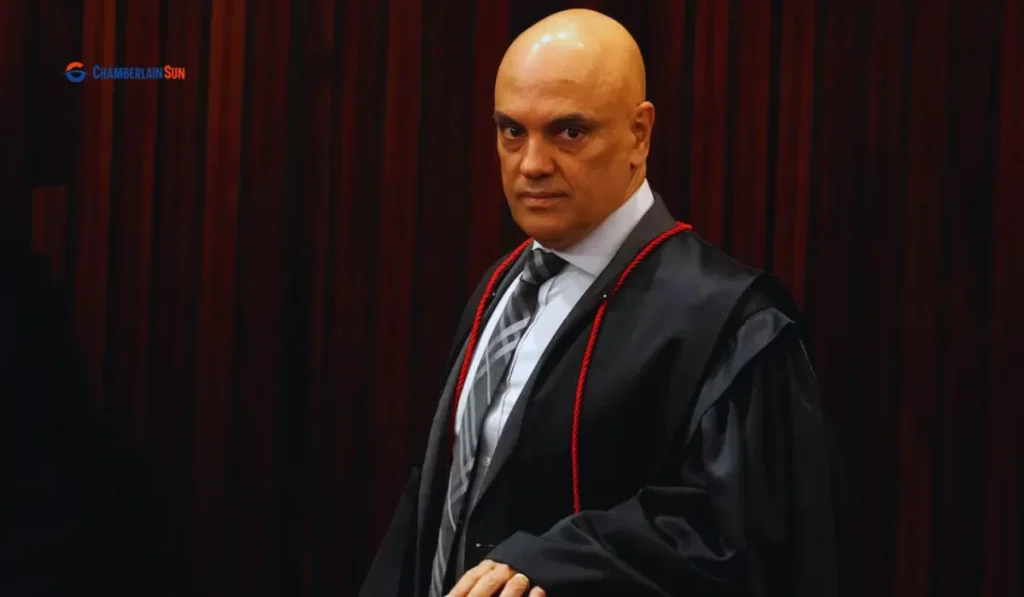SAO PAULO, Brazil — The ongoing clash between tech billionaire Elon Musk and Brazilian Supreme Court Justice Alexandre de Moraes has reached new heights as Musk escalates his rhetoric against the judge. This latest development in their dispute centers on de Moraes’ recent threats to suspend operations of Musk’s social media platform X in Brazil.
In a dramatic escalation of their feud, Musk has labeled de Moraes “an evil dictator” in a series of fiery posts on X. The feud began earlier this month when de Moraes issued an ultimatum to Musk and X, demanding that the company appoint a new legal representative in Brazil and address outstanding fines within 24 hours. Failure to comply would result in the suspension of X’s operations in the country.
Musk’s reaction was swift and vitriolic. “Alexandre de Moraes is an evil dictator cosplaying as a judge,” Musk wrote on X, previously known as Twitter. This outburst follows Musk’s earlier comparison of de Moraes to Darth Vader, underscoring the personal nature of their disagreement. Musk also retweeted a statement from X’s Global Government Affairs team, which indicated that the platform would publish de Moraes’ “illegal demands and all related court filings” shortly.

Brazil, with its substantial user base of about 40 million X users—roughly 18% of the population—represents a significant market for social media platforms. The dispute has drawn considerable attention both within Brazil and internationally, highlighting the tension between free speech and regulatory oversight.
The Conflict Unfolds
The conflict between Musk and de Moraes began over allegations of disinformation and censorship. Earlier in August, X announced it would shut down its Brazilian operations and lay off its staff in the country, citing “censorship orders” from de Moraes as the catalyst for this drastic decision. The company accused de Moraes of overstepping his bounds by ordering the blockage of several X accounts allegedly spreading disinformation.
X’s statement criticized the Brazilian judiciary’s actions, arguing that de Moraes’ orders were not only unjust but also detrimental to its Brazilian employees, who had no control over content moderation. The company claimed that the judge’s threats were an infringement on free speech and due process. “Despite our numerous appeals to the Supreme Court not being heard, the Brazilian public not being informed about these orders, and our Brazilian staff having no responsibility or control over whether content is blocked on our platform, Moraes has chosen to threaten our staff in Brazil rather than respect the law or due process,” the X statement read.
Legal and Political Implications
The ultimatum from de Moraes, which was publicly shared on the Supreme Court’s official X account, gave Musk until Thursday evening local time to comply with his demands. The court’s statement, made late on Wednesday, reflects the seriousness with which Brazilian authorities are treating the matter.
In response to the ongoing conflict, the Supreme Court has emphasized the need for compliance with Brazilian laws, particularly concerning content moderation and misinformation. The court’s position has been that X must adhere to regulations aimed at curbing the spread of false information and ensuring responsible platform management.
Musk’s response, characterized by his outspoken criticism of de Moraes, highlights a broader debate over the balance between regulatory control and free expression. By publicly challenging the judge’s authority and refusing to back down, Musk has drawn significant media attention and public scrutiny.
Public and Media Reactions
Musk’s comments and the subsequent shutdown of X’s Brazilian operations have elicited a range of reactions. Supporters of Musk view his defiance as a stand against perceived overreach by judicial authorities, while critics argue that the dispute undermines the need for effective regulation to combat misinformation.
Brazilian officials and observers have expressed concerns about the impact of Musk’s actions on the country’s digital landscape. The shutdown of X operations could affect millions of users who rely on the platform for news, communication, and social interaction.
Looking Forward
As the situation develops, both sides are expected to continue their legal and public battles. Musk’s continued criticism of de Moraes and the Brazilian judiciary, coupled with the ongoing scrutiny of X’s operations, will likely shape the discourse around digital governance and free speech in the coming weeks.
The resolution of this dispute will have significant implications for the future of social media regulation and the relationship between global tech companies and national governments. For now, the conflict between Elon Musk and Alexandre de Moraes remains at the forefront of discussions about the intersection of technology, law, and free expression.

